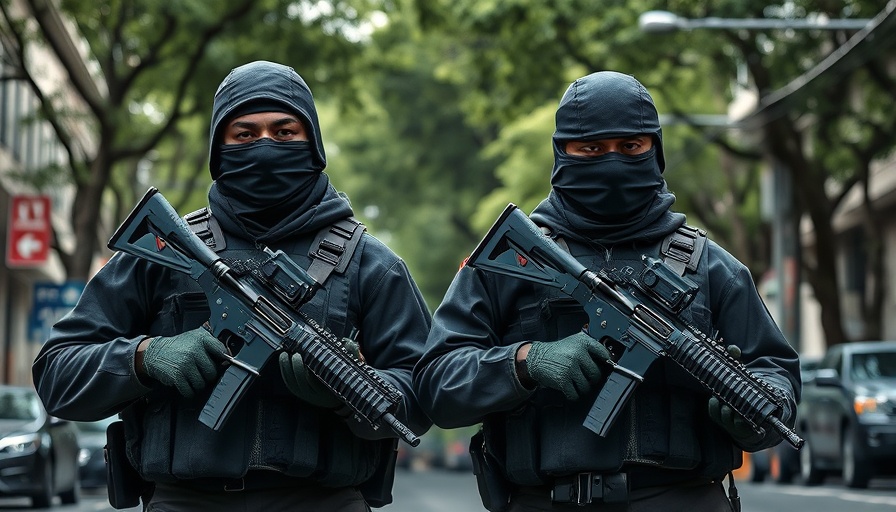
Unraveling the Chaos: What Just Happened in Tripoli?
The recent unrest in Tripoli, sparked by the assassination of Abdul Ghan Kiki, known as Gawa, the leader of the Stability Support Authority (SSA), has plunged the capital into turmoil. The power struggle among Libya's formidable armed factions reached a tipping point, marking a critical moment in the ongoing conflict plaguing the nation. With clashes erupting between government forces and the SSA, citizens found themselves barricaded in a city marred by fear and uncertainty.
In 'Deadly clashes shake Tripoli after security official’s killing', the video explores the violent aftermath of Gawa's assassination, raising significant questions about Libya's political stability.
The Human Cost of Violence
The violence isn’t merely a statistic; it manifests in the faces of frightened families who witnessed the chaos unfold. Reports from residents reflect an acute sense of terror, especially among children and the elderly. The ripple effects of these clashes extend beyond immediate physical harm; schools were shuttered, flights redirected, and safety became a luxury.
This situation begs a crucial question: how much longer can the Libyan populace endure this cycle of violence? Every military confrontation risks straying deeper into a humanitarian crisis, where the vulnerable bear the brunt of armed conflicts.
A Shift in Security Dynamics?
The government's operation to dismantle SSA's influence and secure their bases appears calculated and strategic, a marked difference from previous chaotic engagements. While some praise the rapid and decisive nature of this operation, the broader implications for security governance in Libya are still unclear. The state’s ability to manage other armed groups remains in the balance, and skepticism lingers over whether genuine stability can be achieved.
The Path Forward: Control and Human Rights
Human rights organizations have long documented violations by the SSA, highlighting a grim narrative of unlawful killings and the plight of detained migrants. With the SSA now dismantled, addressing past injustices becomes paramount. Can this government transition into a true protector of human rights, or will it falter under the pressures of ambitious factions still lurking in the shadows?
In light of these developments, the question remains: what future awaits Libya amidst this ongoing struggle for power and control? The shift could either herald a new dawn for the nation or plunge it deeper into despair. Global observers and citizens alike must remain vigilant, ensuring that every step toward peace is taken with accountability and integrity.
Amidst the turmoil, the need for reform and social justice persists. The transitional period provides a window of opportunity to rectify systemic issues and address the humanitarian challenges faced by many. It is our collective responsibility to advocate for lasting change and ensure that the voices of the marginalized are heard.
 Add Row
Add Row  Add
Add 




Write A Comment